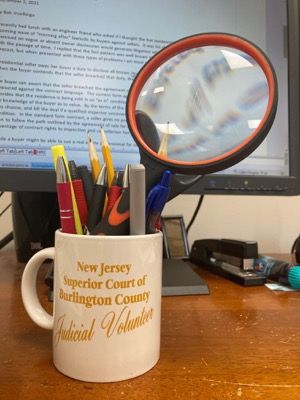Concealed Defects in a Hot Real Estate Market
by Bob Incollingo
I recently had lunch with an engineer friend who asked if I thought the hot residential real estate market foreshadowed a coming wave of “morning after” lawsuits by buyers against sellers. It was his observation that expedited closings premised on vague or absent owner disclosures would generate litigation when non-obvious property defects surfaced with the passage of time. I replied that the fact pattern was well known to me, and he was probably correct in his forecast, but when presented with these types of problems I am most often reluctant to take the case. Here's why:
A residential seller owes her buyer a duty to disclose all known, material, concealed defects in the property for sale. When the buyer contends that the seller breached that duty, there are two or three ways to plead the claim in court.
The buyer can assert that the seller breached the agreement of sale, but such contentions usually fall flat when measured against the contract language. The current form agreement drawn up by New Jersey real estate brokers provides that the residence is being sold in an “as is” condition, and that the contract is being entered into based upon the knowledge of the buyer as to value. By the terms of the contract, the buyer is left to arrange such inspections as he may choose, and kill the deal if his qualified inspector uncovers a physical defect or objectionable environmental condition. With a few statutory exceptions such as cesspools and water treatment systems, in the standard form contract a seller gives no property condition warranties, and no rights to a buyer other than to follow the path outlined by the agreement of sale for dealing with defects. The buyer who fails to take advantage of contract rights to inspection and cancellation has no claim of breach to make.
While a buyer might be able to sue a real estate professional for consumer fraud based on concealment or overt misrepresentation of property defects, the “casual” seller of real property is exempt from such a claim. An ordinary homeowner who does not buy and sell houses for a living cannot be sued for consumer fraud. (Rehabbers and flippers take note: you are not casual sellers.)
It’s a disappointment to an aggrieved buyer that consumer fraud is usually off the table, not only because the remedies of treble damages and attorney fee shifting are lost, but because the burden of proof for a consumer fraud claim – proof by a preponderance of the evidence – is much lower than a similar claim for common law fraud, where the case must be proved by clear and convincing evidence. Where breach of contract and consumer fraud are long shots, all that the buyer has left will be common law fraud.
Common law fraud is a tough case to make when each element of the claim must be proved to the higher “clear and convincing” evidentiary standard. This is so because at least two of the elements of common law fraud are to be found in the mind of the defendant seller - knowledge of falsity and intention for the plaintiff to rely on the false representation (in short, intention to deceive). Unlike in a consumer fraud case, a plaintiff buyer must prove that the seller intended to deceive him in order to make the case for common law fraud. When a defendant denies prior knowledge of a concealed defect, or denies the intention to defraud, proving their mental state to the contrary is a high bar to jump. If the buyer did not notice a concealed defect, then proving the seller did know about it will involve difficult work to persuade judge or jury to reject the seller’s denial. Remember, evidence of the intention to deceive and prior knowledge of falsity must be clear and convincing in order to prove common law fraud.
Of course, every property condition defect case must be evaluated on its own merits. Sometimes there is plenty of evidence of knowing concealment. Many more times, though, there isn’t. Hot market or not, look before you leap. If you've already leaped (or leapt, or even lept) and you still think you have a case, you are invited to give me a call.
Bob Incollingo is a dedicated South Jersey construction attorney who litigates construction, business, and real estate cases in Gloucester County, Burlington County, and Camden County, New Jersey from his office in Cherry Hill. More articles like this appear on RJILAW.com.
